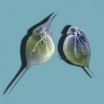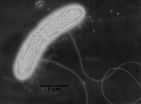(Press-News.org) Psychologists have traditionally characterized compulsive gambling as an "impulse control disorder," and treated it by addressing the patient's obsessive tendencies. But according to Prof. Pinhas Dannon of Tel Aviv University's Sackler Faculty of Medicine and the Beer Yaakov Mental Health Center, not all pathological gamblers fit the same profile.
Though gambling is typically associated with casino games, strategic sports betting is rapidly gaining in popularity — and that's a whole other ball game, Prof. Dannon explains. "Sports gamblers seem to believes themselves the cleverest of all gamblers. They think that with experience and knowledge — such as player's statistics, manager's habits, weather conditions, and stadium capacity — they can predict the outcome of a game better than the average person."
But in a study published in the journal Psychopathology, Prof. Dannon and Dr. Ronen Huberfeld of the Beer Yaakov Mental Health Center determined that neither betting experience nor knowledge of the arcane details of the game is connected to successful betting outcomes. Indeed, he says, the two most successful gamblers in their study had no prior experience in gambling or knowledge of the sport in question.
These results indicate that sports gamblers are operating under an illusion of control and power unrelated to real-life outcomes, says Prof. Dannon. This should inform how psychologists approach sports gamblers, who need to be treated using different methods than their casino-addicted counterparts.
No predictor of success
For their study, the researchers focused on the field of soccer betting, one of the most popular and growing forms of sports gambling. They recruited three groups of participants, including 53 professional sports gamblers, 34 soccer fans who were knowledgeable about the sport but had never gambled, and finally, 78 non-gamblers with no prior knowledge of soccer at all.
All participants were asked to place bets on the final scores of the 16 second-round matches of the Champion's League, organized by the Union of European Football Associations. This model mimics how gamblers actually put their money on the games, where they need to bet on exact scores to win.
Although those who had prior knowledge of soccer were expected to have a higher success rate, the researchers discovered that, in fact, their success rate was no better than those of the other two groups. Interestingly, the two participants with the most successful record, correctly betting on seven out of the 16 games each, hailed from the group with no prior understanding of the sport.
This doesn't indicate that there is an advantage to inexperience, says Prof. Dannon — many others in the third group were unable to predict any of the results correctly. But the outcome exposes the myth of knowledge as a powerful betting advantage. The sense of control that encourages sports gamblers in their betting is just an illusion.
Addressing different addiction profiles
Because psychologists often place all gamblers in the same category, sports gamblers typically receive a standardized treatment. But these methods won't help sports gamblers overcome their addiction, warns Prof. Dannon. Instead, sports gamblers need cognitive therapy that retrains their thinking habits and rids them of the illusion of control.
"Casino gamblers are more appropriately characterized as obsessives because they have less belief in themselves, and know that they will lose sooner or later. But they gamble anyway because they feel they need to," he says. In contrast, sports gamblers believe that they can control the outcome. These different addiction profiles ultimately necessitate different treatment strategies.
###
American Friends of Tel Aviv University supports Israel's leading, most comprehensive and most sought-after center of higher learning. Independently ranked 94th among the world's top universities for the impact of its research, TAU's innovations and discoveries are cited more often by the global scientific community than all but 10 other universities.
Internationally recognized for the scope and groundbreaking nature of its research and scholarship, Tel Aviv University consistently produces work with profound implications for the future. END
It's a sure thing: Knowledge of the game is not an advantage in sports gambling
Sports bettors are driven by an illusory sense of control, says Tel Aviv University researcher
2013-03-19
ELSE PRESS RELEASES FROM THIS DATE:
Can a tropical water flea invade European lakes?
2013-03-19
Daphnia is a genus of small, planktonic crustaceans, commonly called 'water fleas' because of their jumpy swimming style and their size (between 0.2 and 5 mm). They live in various aquatic environments, ranging from acidic swamps to freshwater lakes, ponds, streams and rivers. Species of the genus Daphnia play a key role in freshwater food webs: they consume algae and are themselves an important food item for small fish.
Daphnia lumholtzi is a small subtropical and tropical representative, known as an invader in North America. It has never been found in Europe in the ...
Caterpillar-walk exhumation, the downfall of the Moche, and trilobites in camouflage
2013-03-19
Boulder, Colo., USA – New Geology articles posted online ahead of print cover everything from cratering on Mars to leopard-like camouflage in trilobites. Locations studied include the Ries Impact Crater; Hydrate Ridge, Oregon; Stromboli volcano; northern Peru; the Bushveld Complex, South Africa; western and central New York state; the Sahara Desert; and the French Alps. Brief highlights follow:
1. Analogous cratering at the Ries Impact Crater, Germany, and on Mars;
2. A presentation of the first secure, high-resolution land-sea PSV-based sediment-core synchronization;
3. ...
Wireless, implanted sensor broadens range of brain research
2013-03-19
A compact, self-contained sensor recorded and transmitted brain activity data wirelessly for more than a year in early stage animal tests, according to a study funded by the National Institutes of Health. In addition to allowing for more natural studies of brain activity in moving subjects, this implantable device represents a potential major step toward cord-free control of advanced prosthetics that move with the power of thought. The report is in the April 2013 issue of the Journal of Neural Engineering.
"For people who have sustained paralysis or limb amputation, rehabilitation ...
DNA catalysts do the work of protein enzymes
2013-03-19
CHAMPAIGN, Ill. — Illinois chemists have used DNA to do a protein's job, creating opportunities for DNA to find work in more areas of biology, chemistry and medicine than ever before.
Led by Scott Silverman, a professor of chemistry at the University of Illinois at Urbana-Champaign, the researchers published their findings in the journal Proceedings of the National Academy of Sciences.
Ideally, researchers would like to be able to design and build new catalysts from scratch that can do exactly what they want. Many enzymes make small modifications to the building blocks ...
UMass Amherst researchers reveal mechanism of novel biological electron transfer
2013-03-19
AMHERST, Mass. – When researchers at the University of Massachusetts Amherst led by microbiologist Derek Lovley discovered that the bacterium Geobacter sulfurreducens conducts electricity very effectively along metallic-like "microbial nanowires," they found physicists quite comfortable with the idea of such a novel biological electron transfer mechanism, but not biologists.
"For biologists, Geobacter's behavior represents a paradigm shift. It goes against all that we are taught about biological electron transfer, which usually involves electrons hopping from one molecule ...
Sex between monogamous heterosexuals rarely source of hepatitis C infection
2013-03-19
Individuals infected by the hepatitis C virus (HCV) have nothing to fear from sex in a monogamous, heterosexual relationship. Transmission of HCV from an infected partner during sex is rare according to new research published in the March issue of Hepatology, a journal published by Wiley on behalf of the American Association for the Study of Liver Diseases (AASLD).
Experts estimate that HCV affects up to 4 million Americans, most of whom are sexually active. Medical evidence shows HCV is primarily transmitted by exposure to infectious blood, typically through intravenous ...
Greenhouse gas policies ignoring gap in household incomes: University of Alberta study
2013-03-19
Government policies aimed at reducing greenhouse gas emissions from consumers need to be fairer for household income levels, says a University of Alberta researcher.
A U of A study published recently online in the journal Environment and Behaviour looks at the different sources of greenhouse gas emissions from consumers, based on their income levels. The wealthiest households in Alberta emit the most greenhouse gases, but too often, income disparity hasn't been factored in to current polices—such as the carbon flat tax that is levied to British Columbia residents.
Such ...
Kill Bill character inspires the name of a new parasitoid wasp species
2013-03-19
Parasitoid wasps of the family Braconidae are known for their deadly reproductive habits. Most of the representatives of this group have their eggs developing in other insects and their larvae, eventually killing the respective host, or in some cases immobilizing it or causing its sterility. Three new species of the parasitoid wasp genus Cystomastacoides, recently described in the Journal of Hymenoptera Research, reflect this fatal behavior.
Two of the new species were discovered in Papua New Guinea, while the third one comes from Thailand. The Thai species, Cystomastacoides ...
Newly incarcerated have 1 percent acute hepatitis C prevalence
2013-03-19
A study published in the March issue of Hepatology, a journal of the American Association for the Study of Liver Diseases, estimates that the prevalence of acute hepatitis C virus (HCV) infection is nearly one percent among newly incarcerated inmates with a history of recent drug use. Findings suggest that systematic screening of intravenous (IV) drug users who are new to the prison system could identify more than 7,000 cases of HCV across the U.S. annually—even among asymptomatic inmates.
According to the National Institute of Allergy and Infectious Diseases Health—the ...
Pre-college talk between parents and teens likely to lessen college drinking
2013-03-19
Teen-age college students are significantly more likely to abstain from drinking or to drink only minimally when their parents talk to them before they start college, using suggestions in a parent handbook developed by Robert Turrisi, professor of biobehavioral health, Penn State.
"Over 90 percent of teens try alcohol outside the home before they graduate from high school," said Turrisi. "It is well known that fewer problems develop for every year that heavy drinking is delayed. Our research over the past decade shows that parents can play a powerful role in minimizing ...
LAST 30 PRESS RELEASES:
Korea University, Stanford University, and IESGA launch Water Sustainability Index to combat ESG greenwashing
Molecular glue discovery: large scale instead of lucky strike
Insulin resistance predictor highlights cancer connection
Explaining next-generation solar cells
Slippery ions create a smoother path to blue energy
Magnetic resonance imaging opens the door to better treatments for underdiagnosed atypical Parkinsonisms
National poll finds gaps in community preparedness for teen cardiac emergencies
One strategy to block both drug-resistant bacteria and influenza: new broad-spectrum infection prevention approach validated
Survey: 3 in 4 skip physical therapy homework, stunting progress
College students who spend hours on social media are more likely to be lonely – national US study
Evidence behind intermittent fasting for weight loss fails to match hype
How AI tools like DeepSeek are transforming emotional and mental health care of Chinese youth
Study finds link between sugary drinks and anxiety in young people
Scientists show how to predict world’s deadly scorpion hotspots
ASU researchers to lead AAAS panel on water insecurity in the United States
ASU professor Anne Stone to present at AAAS Conference in Phoenix on ancient origins of modern disease
Proposals for exploring viruses and skin as the next experimental quantum frontiers share US$30,000 science award
ASU researchers showcase scalable tech solutions for older adults living alone with cognitive decline at AAAS 2026
Scientists identify smooth regional trends in fruit fly survival strategies
Antipathy toward snakes? Your parents likely talked you into that at an early age
Sylvester Cancer Tip Sheet for Feb. 2026
Online exposure to medical misinformation concentrated among older adults
Telehealth improves access to genetic services for adult survivors of childhood cancers
Outdated mortality benchmarks risk missing early signs of famine and delay recognizing mass starvation
Newly discovered bacterium converts carbon dioxide into chemicals using electricity
Flipping and reversing mini-proteins could improve disease treatment
Scientists reveal major hidden source of atmospheric nitrogen pollution in fragile lake basin
Biochar emerges as a powerful tool for soil carbon neutrality and climate mitigation
Tiny cell messengers show big promise for safer protein and gene delivery
AMS releases statement regarding the decision to rescind EPA’s 2009 Endangerment Finding
[Press-News.org] It's a sure thing: Knowledge of the game is not an advantage in sports gamblingSports bettors are driven by an illusory sense of control, says Tel Aviv University researcher




